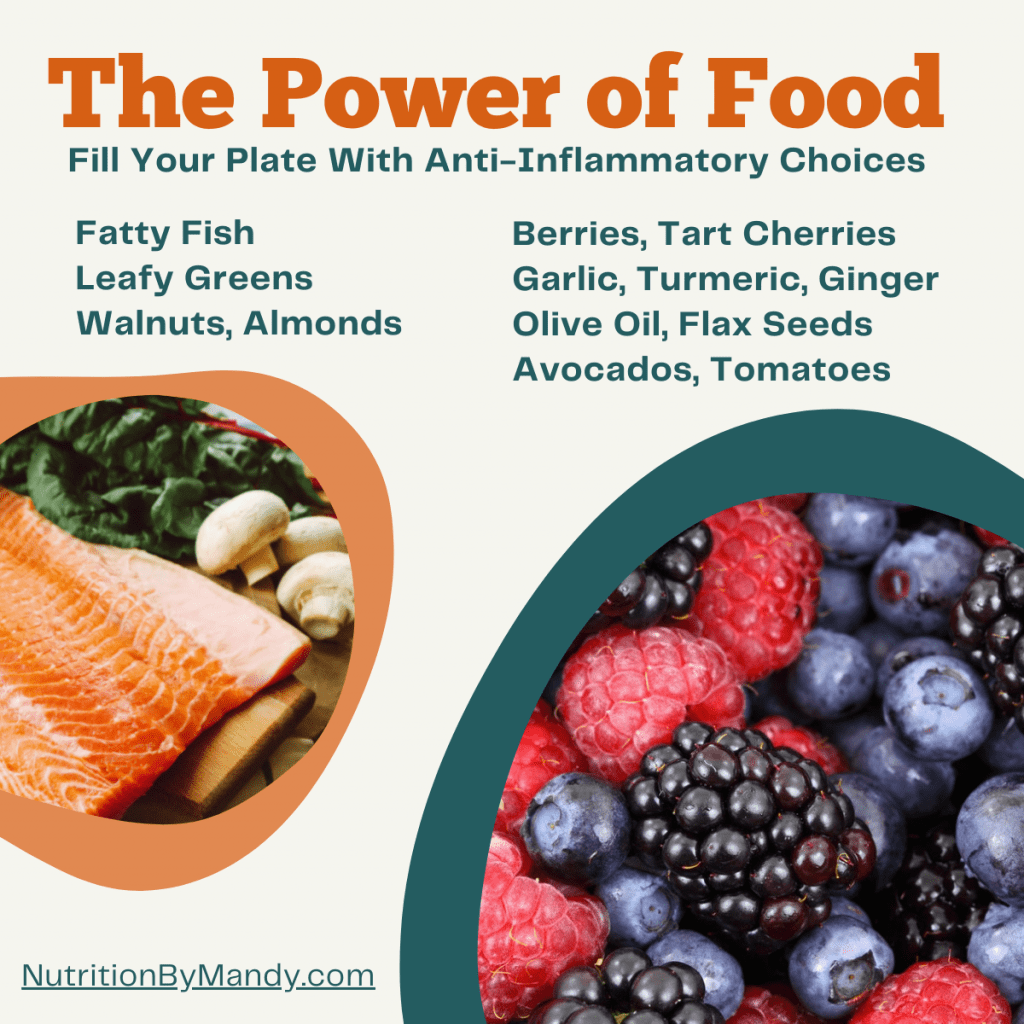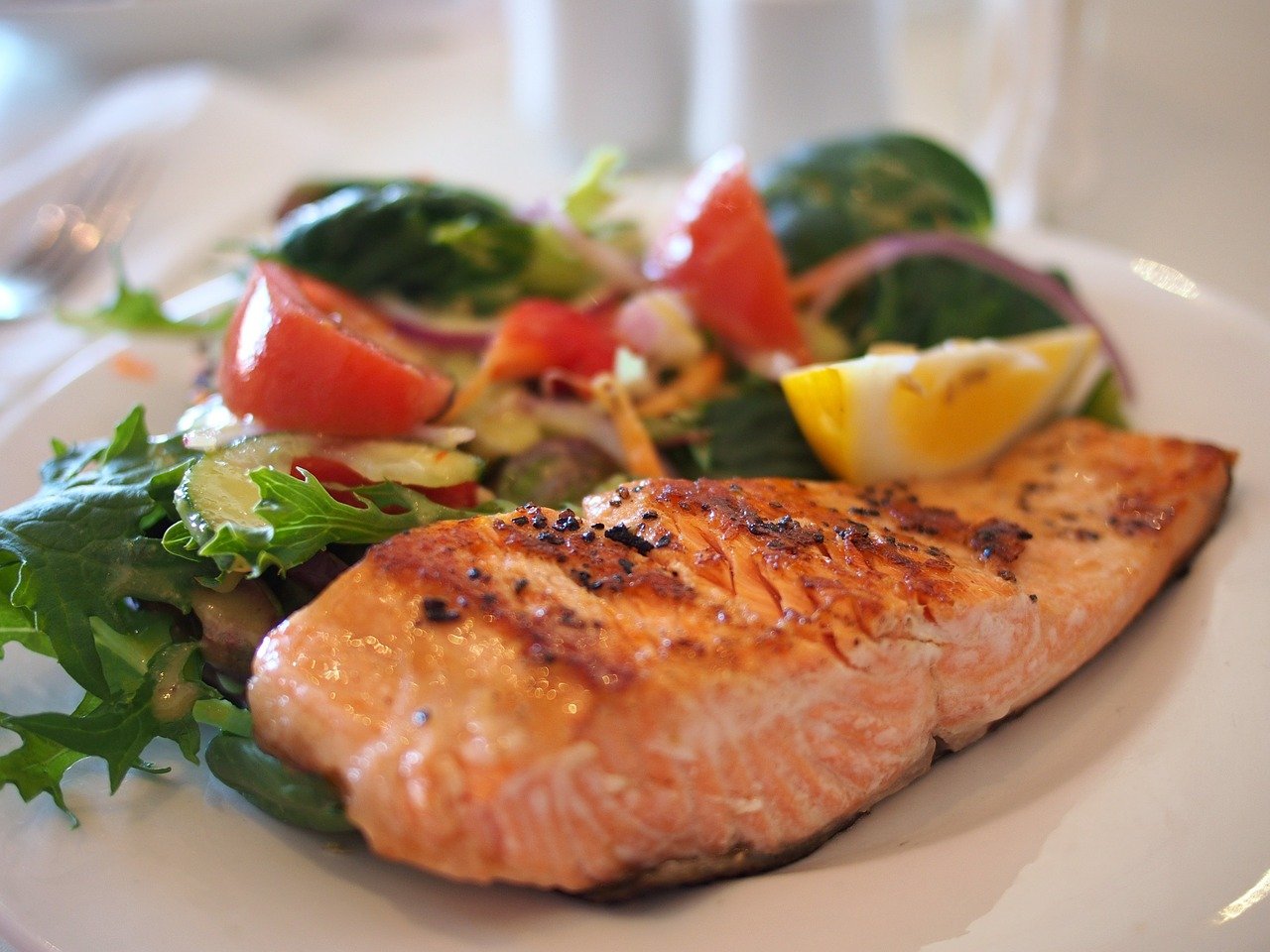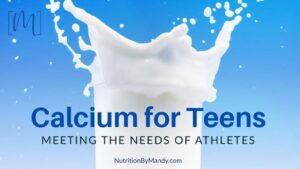Last Updated on July 5, 2022 by Mandy Tyler, M.Ed., RD, CSSD, LD
“Let food be thy medicine, and let medicine be thy food.” ~Hippocrates
Food has long been recognized for having an impact on an individual’s health and well-being. When it comes to sports nutrition, we know choosing the right foods at the right times can impact performance. We also know that a well planned sports nutrition diet can help reduce inflammation in the body and enhance recovery. If you are looking to take full advantage of the power of food, try adding these anti-inflammatory foods to your performance plate.
Anti-Inflammatory Foods & Spices
Omega-3 Fatty Acids
Foods containing omega-3 fatty acids work in the body to reduce inflammation. The best sources of omega-3 fatty acids come from fatty fish, such as salmon, tuna, mackerel, and herring. Some plant foods also contain omega-3 fatty acids, such as chia seeds, flax seeds, and walnuts. Our bodies must convert the omega-3 fatty acids found in plant foods, called alpha-linolenic acid (ALA), to the form of omega-3 fatty acids found in fatty fish, eicosapentaenoic acid (EPA) and docosahexaenoic acid (DHA), for our bodies to utilize and benefit from the anti-inflammatory properties.
Berries
Berries are an incredible super-food packed full of nutrients, including: Vitamins A and C, iron, fiber, anthocyanins, and polyphenols. Aim to incorporate a variety of berries in your sports nutrition meal plan, such as blueberries, strawberries, raspberries, blackberries, and goji berries. Try mixing berries into your oatmeal, blending them into your smoothies, as a topping for your salad, and as an ingredient in your yogurt parfaits.
Tart Cherries
Tart cherries are a great source of antioxidants and phytochemicals, including: anthocyanins, flavonoids, and flavanols. Research on the consumption of tart cherry juice has found reduced muscle soreness and faster strength recovery after exercise as well as decreased inflammation and oxidative stress. Consider adding tart cherries and tart cherry juice into your performance diet – blending tart cherry juice into a smoothie makes a powerhouse post-workout shake.
Dark Green Leafy Vegetables
Dark green leafy vegetables, such as spinach, kale, arugula, romaine lettuce, and swiss chard, are excellent sources of many vitamins, minerals, and antioxidants. They provide the body with Vitamins A, C, E, and K, iron, potassium, calcium, magnesium, as well as fiber. Leafy greens are great for building nutritious salads, mixing into a stir-fry or soup, blending into a smoothie, or as a topping for a sandwich.
Probiotics
Support a healthy gut and immune system with the consumption of foods containing probiotics. Dietary sources of probiotics include kefir, yogurt with live active cultures, kombucha, tempeh, miso, sauerkraut, kimchi, and other fermented foods.
Lean Protein
The amino acids in protein not only serve as building blocks for muscles, they are also important components of the immune system. Antibodies are proteins made by the immune system to help fight bacteria, viruses, and infections. Aim to spread your protein intake throughout the day and include 25-30 grams of protein with each meal and your post-workout snack. Good protein options include: poultry, chicken, fish, pork, lean red meat, eggs, low-fat dairy, Greek yogurt, tofu, quinoa, nuts, nut butters, and beans.
Anti-Inflammatory Spices
Spices not only add flavor, but many also provide nutritional and antioxidant benefits. Spice up your meals with garlic, ginger, tumeric, and rosemary. For more information on spices, check-out my recent Spice Time! blog.
For additional ideas for incorporating anti-inflammatory foods into your daily diet meet with a Registered Dietitian to help create a customized sports nutrition meal plan that meets your specific needs.

Reference:
Vitale KC, Hueglin S, Broad E. Tart Cherry Juice in Athletes: A Literature Review and Commentary. Curr Sports Med Rep. 2017 Jul/Aug;16(4):230-239. doi: 10.1249/JSR.0000000000000385. PMID: 28696985.





